The Persian Version is a semi-autobiographical dramedy written and directed by Maryam Keshavarz that explores the experiences of Iranian-American immigrants across multiple generations. Centered around a mother-daughter relationship strained by clashing cultural values, the film blends comedy and drama to unpack weighty themes of identity, betrayal, and family bonds.
Leading the cast are newcomer Layla Mohammadi as Leila, an outspoken bisexual aspiring filmmaker living in Brooklyn, and Niousha Noor as her disapproving mother Shirin, an ambitious real estate broker. Making up the rest of the family are Leila’s traditional Iranian father Ali (Bijan Daneshmand) and her eight brothers, as well as grandmother Mamanjoon (Bella Warda).
After Leila attends a costume party and unexpectedly becomes pregnant from a one-night stand, she is forced to return home to be with her family as they deal with her father’s failing health. This uneasy reunion with her stoic mother reignites the culture clash between Leila’s Western independence and Shirin’s Old World conservatism.
In this review, we will dive deeper into the complex mother-daughter relationship at the heart of the film. We’ll analyze how The Persian Version tackles themes of culture clash, generational divides, gender roles, and immigrant experiences through humor and poignant family drama. With its blend of tones and timelines, does this intimate story succeed at portraying the Iranian-American experience? Let’s find out.
Navigating Between Two Worlds as Leila
Leila serves as the protagonist and narrator of The Persian Version, bringing a fiery spirit to the screen as she tackles issues of sexuality, career ambitions, and cultural displacement. As an Iranian-American raised in New Jersey, Leila feels caught between two worlds, leading to friction with her stern mother Shirin.
Portrayed with vibrancy by newcomer Layla Mohammadi, Leila is the only daughter in a family of eight brothers. She identifies as bisexual, having recently ended a relationship with her ex-wife before becoming entangled with Maximilian, a British actor she meets at a costume party. This fling results in an unexpected pregnancy that disrupts Leila’s aspirations of becoming a filmmaker, the “next Martin Scorsese” as she jokingly puts it.
Free-spirited and outspoken, Leila frequently breaks the fourth wall in the film, directly addressing the audience with cheeky asides about her mess of a life. She wears a provocative “burkini” to the fateful costume party, highlighting her conflicts between her Iranian roots and American upbringing. “I’m too Iranian for America and too American for Iran,” she laments.
This culture clash comes to a head in her strained relationship with her mother Shirin, who immigrated to the US in the 1980s. Shirin disapproves of Leila’s constant bucking of tradition, from her fluid sexuality to her creative career. She fails to understand Leila’s hybrid cultural identity.
When Leila was a child, she and Shirin would visit family in post-revolution Iran. Young Leila took it upon herself to smuggle in banned Western pop music to share. This rebelliousness did not endear her to Shirin. Now as an adult, Leila’s unplanned pregnancy only widens the rift between them.
Shirin wishes Leila would settle down with a proper Iranian husband and start a family. But Leila continues down her own path, dating who she pleases and chasing her artistic dreams. She sees Shirin as cold and controlling, but comes to realize there is more to her mother than meets the eye.
Caught between the free-wheeling social mores of her American friends and the conservatism of her traditional Iranian family, Leila struggles to define herself. She projects a confident, wise-cracking persona but underneath feels the profound uncertainty of those with hybrid identities. Her experiences reveal the unique challenges children of immigrants face in reconciling their roots with new cultural contexts.
Leila’s quest to pursue an artistic career also causes friction with her practical mother. But Leila will not be deterred from following her passion, even if it means being seen as the family disappointment. Her ambition drives the story forward, as she tries to scripts the tale of her life through her own visionary lens.
With humor and pathos, The Persian Version succeeds in bringing Leila’s voice to the screen. Many children of immigrant parents will relate to her fish-out-of-water feelings and tangles with familial expectations. Leila shows that forging one’s own identity requires courage in the face of generational and cultural divides.
Explore the Intense Dynamics of Saltburn: Join us in dissecting the complex interplay of characters in Emerald Fennell’s Saltburn. Read our comprehensive analysis of Saltburn to understand how this film masterfully portrays the corrupting influence of privilege and the consequences of forbidden desires.
Shirin: From Child Bride to Ambitious Matriarch
While much of The Persian Version focuses on daughter Leila, the heart of the film lies in understanding the past and motivations of her mother, Shirin. Played with grace and empathy by Niousha Noor, Shirin initially comes across as strict and cold. But flashbacks to her youth reveal hidden depths to this ambitious woman determined to overcome life’s hardships.
In 1960s rural Iran, young Shirin found her future cruelly decided for her when she was married off to a much older man at the tender age of 13. Despite being a promising student, her dreams were silenced when she became the child bride of the 22-year-old town doctor, Ali. Cultural tradition dictated this arranged marriage to the educated man, irrespective of Shirin’s wishes.
The film transport us back to witness Shirin’s ill-fated wedding day intercut with her washing the bloody sheets from her wedding night. This gut-wrenching sequence makes clear the trauma inflicted on Shirin, forced into womanhood and motherhood before her time.
Shirin’s in-laws exerted immense pressure on her to continually produce male heirs for Ali. She endured eight painful childbirths before finally giving birth to the long-awaited daughter, Leila. Shirin focused her efforts on being a good wife and mother, sacrificing her own ambitions without complaint.
When political turmoil forced the family to flee Iran in the 1980s, Shirin showed her mettle. Settling in New Jersey, she steadily built a career as a successful real estate broker, becoming the family’s breadwinner. This required learning English and earning her GED as an adult, all while raising nine children.
Shirin is portrayed as a quietly strong, unflappable woman who does what needs to be done. She believes firmly in maintaining traditions and does not approve of Leila flouting conventions. But beneath her stern exterior, we come to understand Shirin’s motivations. The flashbacks to her oppressive child marriage reveal why she insists on family first.
One shocking secret uncovered is that Shirin endured Ali’s extramarital affair back in their Iranian village, choosing to keep the family intact. This resilience and sacrifice for her children’s wellbeing further explain why the headstrong Leila so frustrates Shirin.
While the mother-daughter relationship remains strained, the glimpses into Shirin’s past help Leila see her not as a cold authority figure, but as a real person shaped by cultural forces. Leila comes to appreciate Shirin’s inner strength and devotion that kept the family thriving through so many upheavals.
In giving equal time to both generations of women, The Persian Version thoughtfully unpacks the immigrant experience across time. Shirin’s struggles as a young bride and mother in Iran enrich our understanding of Leila’s childhood as an outsider in America. Their differences reflect the vast changes between generations, even within one family.
Ultimately, Shirin’s fortitude and sacrifice emerge as the foundation upon which the family’s success was built. She is far more complex than simply an overbearing mother. The Persian Version gives nuanced voice to Shirin’s story, honoring the silenced dreams of so many women like her.
Capturing Complexity Through an Unconventional Lens
Writer/director Maryam Keshavarz brings her intimate family story to life using an inventive mix of filmmaking techniques in The Persian Version. The complex narrative encompassing multiple timelines and perspectives necessitates an unconventional approach to seamlessly blend comedy and drama.
Leila frequently serves as a direct narrator, breaking the fourth wall to address the audience with wry commentary on the unfolding family chaos. Her animated asides add a meta touch while revealing her inner thoughts. Keshavarz also utilizes the narrator role to transition across the disjointed storylines, lending cohesion.
Fantasy sequences provide momentary escapes from the drama, as when young Leila and Shirin dance carefreely to the ironic strains of “Girls Just Want to Have Fun” in a daydream sequence. The absurdity of this surreal interlude in rural Iran highlights the oppression these women faced.
In terms of structure, the film hopscotches back and forth between 1960s Iran and present-day New York City. Extended flashbacks take us into a young Shirin’s ill-fated marriage in an Iranian village, revealing the difficult early years that shaped her. Contrasting this repressive time period against modern American life underscores the drastic generational differences.
At first, the frequent time shifts feel jarring and disjointed. But as the film progresses, the thematic parallels between past and present emerge. We come to see how Shirin’s experiences with betrayal and obligation feed into her clashes with independent Leila. Their differences reflect how profoundly women’s roles shifted across Iran and America over this timespan.
The tone also careens wildly between melodramatic tragedy and slapstick comedy across these eras. Shirin’s heartbreaking backstory deals with serious issues like forced child marriage and domestic abuse. Meanwhile, Leila’s present-day arguments with her mother often play as over-the-top farce. The film risks tonal whiplash with such drastic highs and lows.
Yet ultimately the humor serves to make the heavy themes more palatable, while the weightier moments lend resonance to the laughs. Keshavarz manages to strike a balance between earnestness and irreverent humor, much like life itself. Moments of levity remind us of the resilience of family in even the darkest times.
The Persian Version will not be for those seeking a straightforward narrative. Its loose, lively style aptly captures the messiness of family. While the complex structure poses challenges, Keshavarz succeeds in weaving the strands between past and present into an affecting, multidimensional gem. The unconventional approach pays off with a richness of character and theme that does justice to this personal saga.
Explore a Unique Coming-of-Age Journey: “Delve into the heartwarming and culturally rich narrative of Frybread Face and Me, a film that beautifully captures the essence of growing up and connecting with one’s heritage.”
Exploring Culture, Gender, and Family Ties
At its core, The Persian Version grapples with themes of culture clash, generational divides, gender inequality, and the complex bonds of family. While crafted as an intimate character piece, the universal struggles portrayed resonate well beyond the Iranian-American context.
Most prominently, the film examines the difficulties of navigating two cultures and forging a bi-cultural identity. Leila feels torn between the social norms of her parents’ generation and the liberties afforded her as an American. Shirin cannot reconcile her Old World conservatism with her daughter’s modern independence. Their arguments touch on the profound challenge of reconciling one’s roots with new cultural contexts.
Relatedly, a chasm exists between the immigrant generation and their Westernized children. Shirin and Leila embody the vast shifts in women’s roles and expectations between 1960s Iran and modern America. Their differing values spotlight intergenerational misunderstandings within even one family. Yet seeing Shirin’s past illuminates her motivation for protecting tradition, softening their divide.
Gender inequality and oppression also figure prominently. Shirin’s narrative reveals the plight of young women like herself forced into arranged marriages, denied agency over their futures. Patriarchal attitudes exert control over Shirin’s actions and ambitions at every turn, from Iran to America. Even Leila faces judgement for her career and partners. The film pointedly questions these rigid gender roles.
Love in its many permutations threads through the narrative, from Leila’s search for self-acceptance to Shirin’s self-sacrificing devotion as a mother. Their frayed connection suggests the difficult love between mothers and daughters as generations collide. Yet Shirin’s secrets speak to the depths one will go for family. Her past choices safeguard the family unit, however imperfect.
Ultimately, The Persian Version argues for compassion as the antidote to cultural misunderstandings. Though Leila does not agree with her mother’s worldview, glimpsing her hidden pain fosters forgiveness. Portraying their differences with nuance, the film concludes that family transcends generational or cultural divides when met with empathy.
These resonant themes centered around identity, gender, and family carry relevance for North American and international audiences alike in our increasingly globalized world. The film encapsulates universal struggles faced by immigrants and their children in balancing old with new. At its heart, The Persian Version argues for intergenerational compassion.
“Venture into the depths of cosmic mystery with our review of The Signal, a cerebral sci-fi saga that challenges the boundaries of human understanding. Discover how this German Netflix series intertwines familial drama with the vast unknown of extraterrestrial intelligence.”
Standout Performances Bring the Story to Life
The Persian Version succeeds on the strength of its talented cast, who breathe vivid humanity into this intimate family portrait. Layla Mohammadi makes a stellar debut as the effervescent Leila, deftly pivoting between spirited comedy and vulnerability. She carries the film with her magnetic presence.
As her stern foil, Niousha Noor captivates in a understated performance as Shirin. She movingly conveys the quiet dignity and inner turmoil of a woman conditioned not to express her own desires. The rapport between Mohammadi and Noor generates palpable tensions and affections.
Supporting players like Bella Warda as the sly, scene-stealing grandmother Mamanjoon and Bijan Daneshmand as Leila’s kindly father Ali provide endearing comedic relief. The ensemble cast of brothers, though thinly sketched, offer amusing snapshots of Iranian masculinity.
On the production side, the film sports a bright, cartoon-inspired visual style. The pastel color palette and magical realist flourishes like the animated dance sequence create a whimsical atmosphere. Pop music punctuations keep the energy high.
The editing neatly braids together the criss-crossing timelines, while drawer animations smooth transitions between eras. Slick camerawork brings dynamism to this dialogue-heavy dramedy.
Costuming also proves important in articulating the characters, from Leila’s eye-catching burkini to the traditional dress of Shirin’s generation. The aesthetic elements work cohesively to elevate the script’s humor and emotion.
With its stellar lead performances and transportive visual and audio landscape, The Persian Version successfully immerses the audience in the multigenerational saga. The technical craft and acting talents work in harmony to realize this ambitious vision. While imperfect, the film displays no shortage of heart and artistry.
An Endearing Dramedy About Family’s Enduring Bonds
For all its tonal unpredictability and loose plot structure, The Persian Version ultimately succeeds as an affecting family dramedy. It thoughtfully explores the complex ties between mothers and daughters, past and present, through a compassionate lens.
While the frequent time-hopping between eras and storylines makes for a messy viewing experience at times, the rewards lie in the richly drawn characters that emerge. Leila and Shirin both break stereotypes about Iranian women, revealing their singular struggles in balancing ambition with tradition.
The humor, though sometimes overly zany, serves to balance the serious family drama at the story’s core. As mothers and daughters separated by generational divides, Leila and Shirin must learn to truly see each other’s hidden depths and motivations. Their joint journey speaks to many families fractured along cultural lines.
Some may find the tonal inconsistencies and meandering narrative overly challenging. Yet patient viewers will find an immigrant family portrayed with all its messy humanity intact. The use of multiple perspectives ultimately enriches the central relationship between strong-willed women.
Weaving tragedy and comedy, the past and the present, The Persian Version concludes that compassion is essential for overcoming cultural barriers. Director Maryam Keshavarz shares her own family’s story as a bridge toward greater understanding.
At its best, the film cuts through differences of generation, gender and background to find the simple humanity within. Its generosity of spirit asserts that all families, regardless of culture, want the same things – love, fulfillment and connection across generations.
The Persian Version reminds us that by opening our eyes to others’ hidden depths, we take the first step in healing divides. With empathy and humor, this eccentric dramedy finds universality in one Iranian family’s story.
The Review
The Persian Version
Though uneven at times, The Persian Version ultimately emerges as a thoughtful and big-hearted exploration of family, culture, and womanhood. By shedding light on the untold stories of mothers like Shirin, it reveals the common ground beneath generational and cultural divides. With strong performances and a compassionate lens, this inventive dramedy succeeds as an ode to the resilience of family bonds.
PROS
- Strong lead performances by Layla Mohammadi and Niousha Noor bring nuance and depth to the mother-daughter relationship
- Thoughtful examination of cultural clashes, immigrant experiences, and women's evolving roles
- Shirin's backstory provides affecting insight into the plight of Iranian women of older generations
- Creative storytelling techniques like narration, animation, and nonlinear timeline keep the film visually engaging
- Balances humor and serious family drama effectively for an emotional experience
- The message about intergenerational understanding and empathy comes through powerfully
CONS
- The frequent time jumps between past and present can feel disjointed
- Supporting characters like Leila's brothers remain underdeveloped
- Tonal shifts between melodrama and comedy sometimes feel jarring
- The storytelling format and structure may be overly complex for some viewers
- Cultural specifics around Iranian family dynamics are not always made clear for outsiders
- The ending resolves the family conflicts a bit too neatly
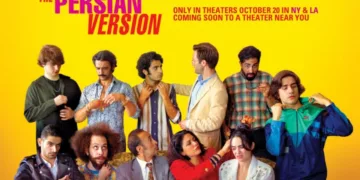








































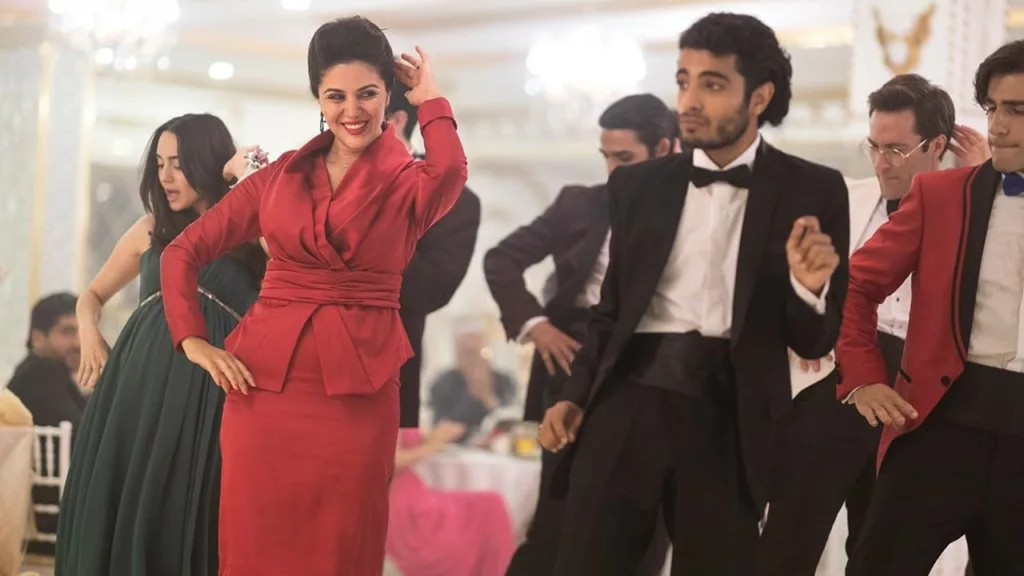
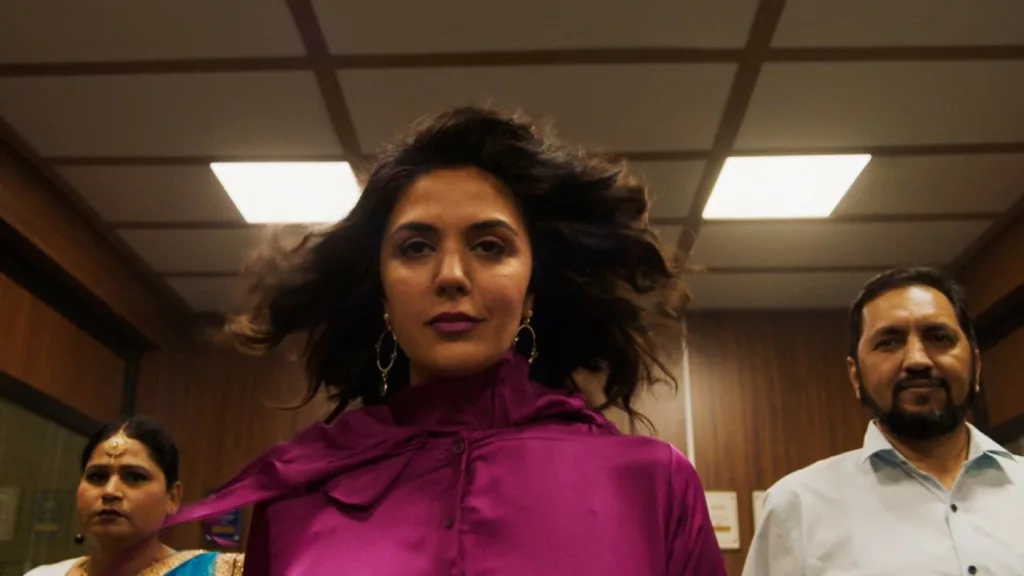
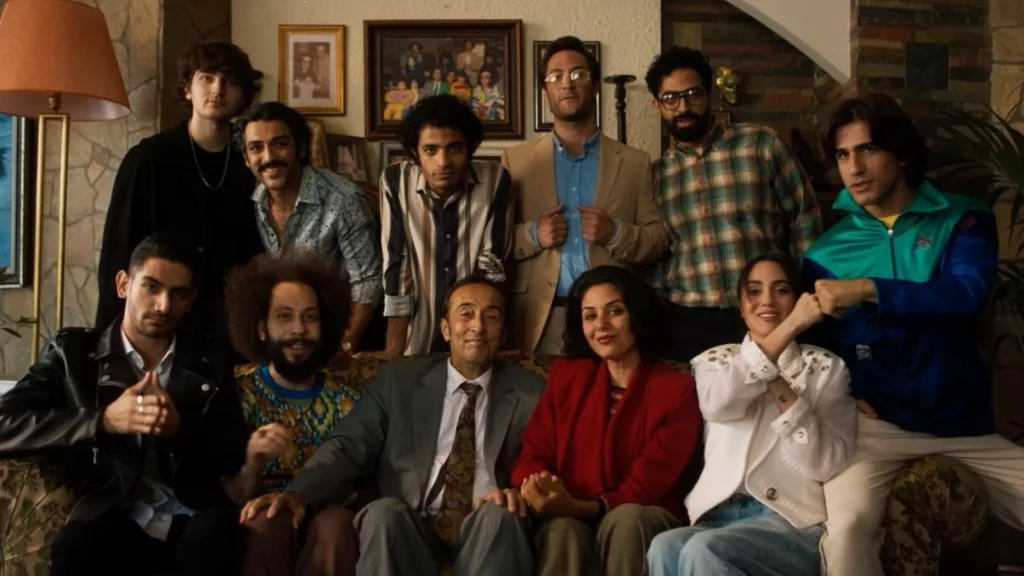
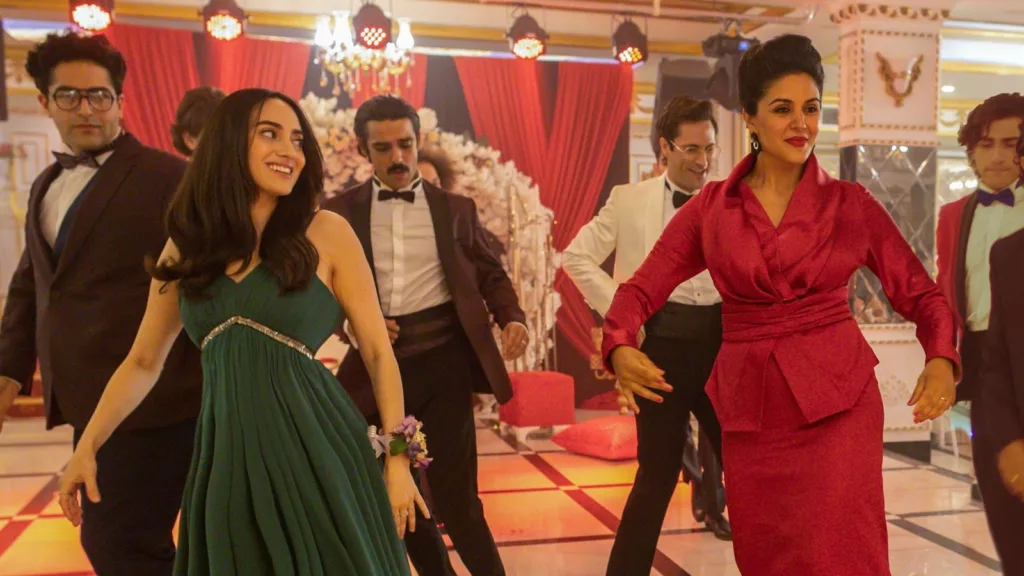
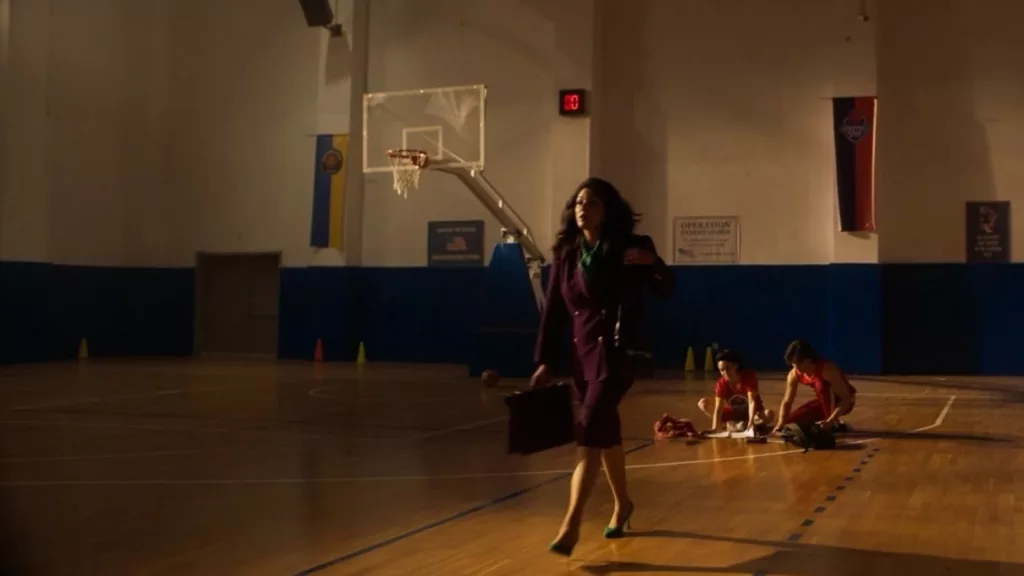
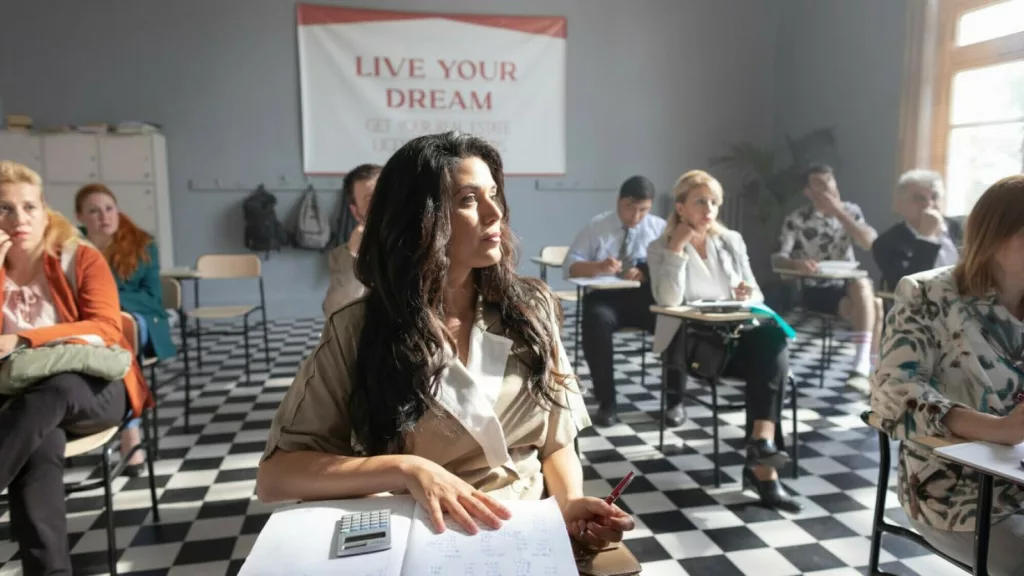








Discussion about this post